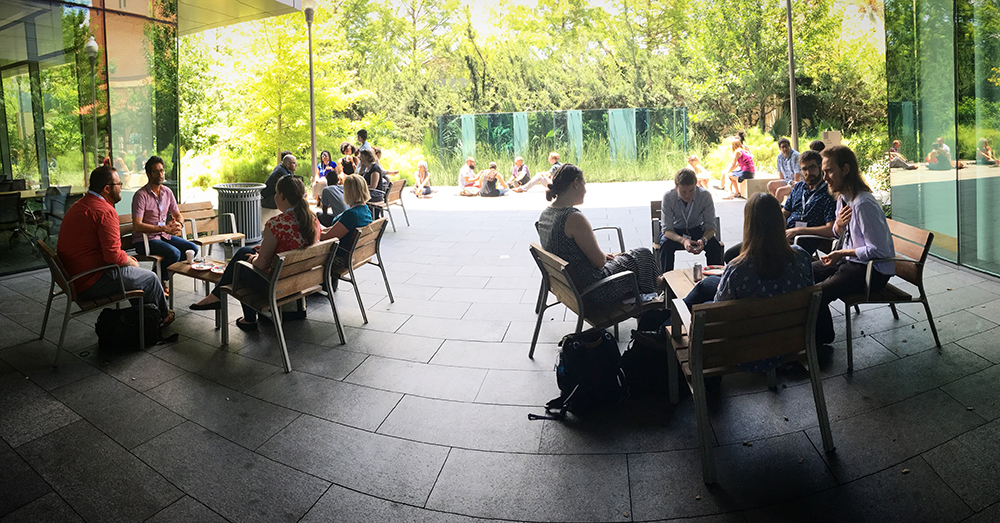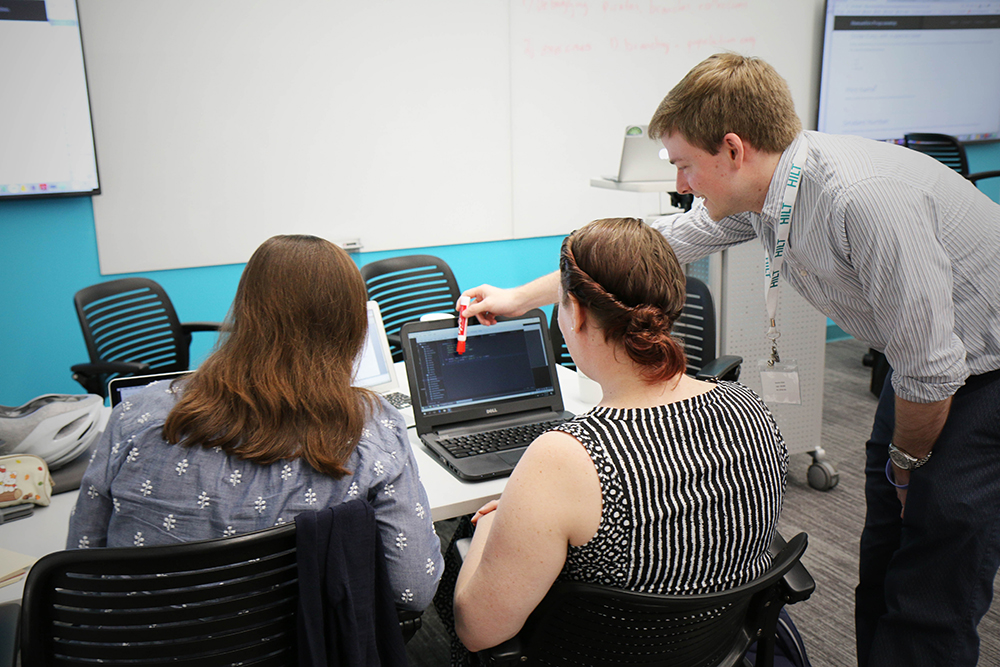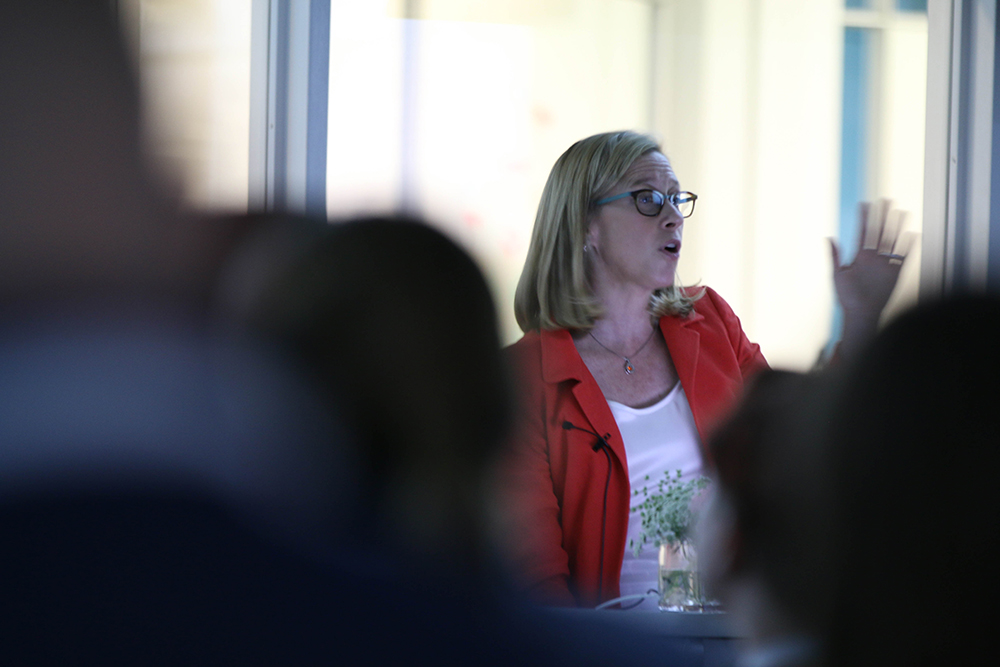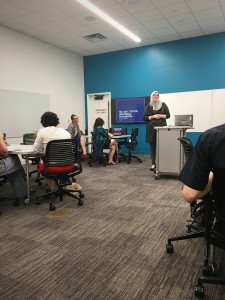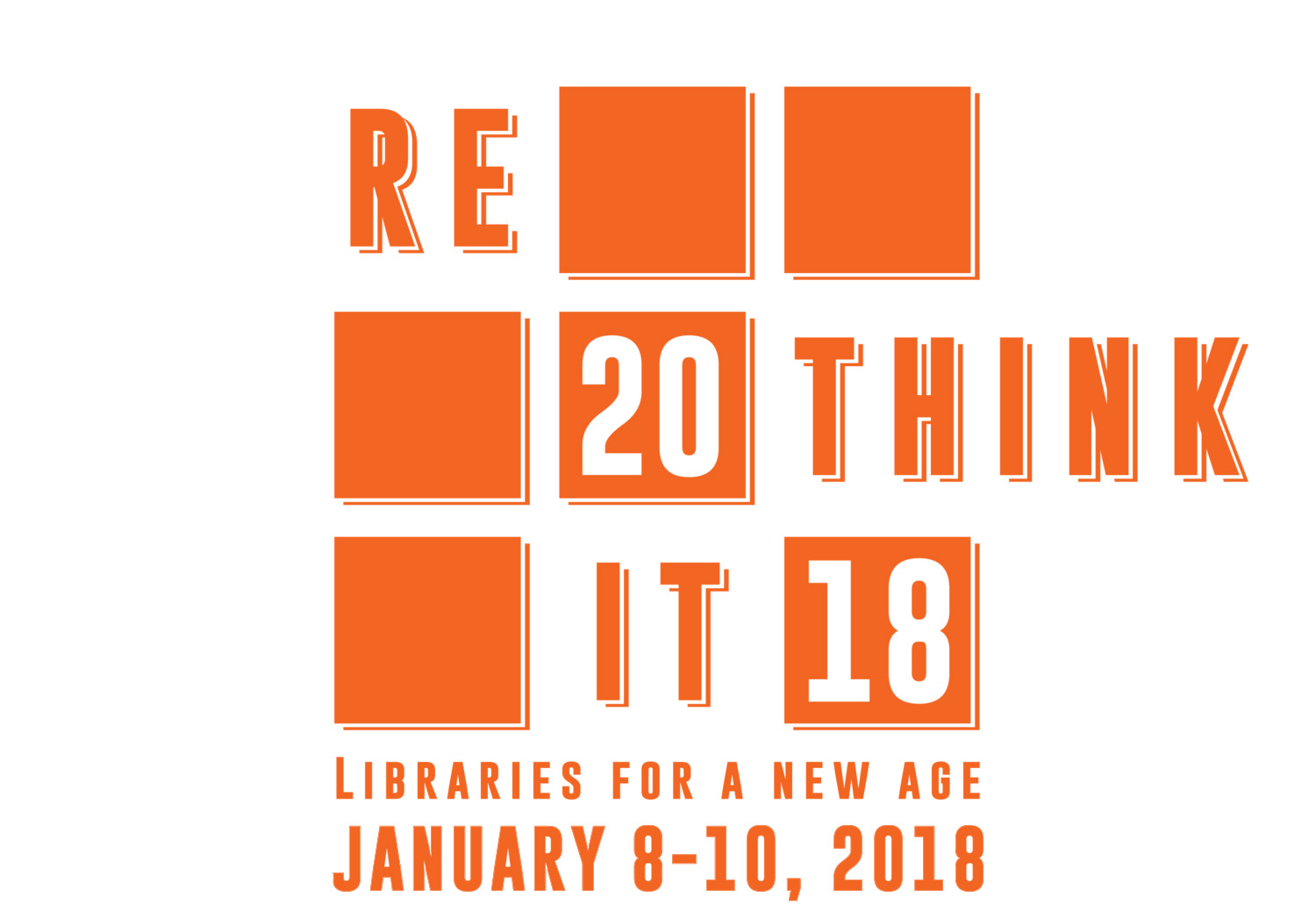Libraries’ staff regularly excel beyond their day-to-tay accomplishments, and are recognized as high-level experts in their fields through awards, grants, appointments to professional organizations, and publications of professional import. Here we recognize a sample of recent achievements.
This year, two University of Texas Libraries librarians received Texas Digital Library (TDL) awards in recognition of outstanding contributions to digital libraries. Digital Scholarship LibrarianAllyssa Guzman received the Individual Impact Award for her work on the Diversity Resident Program and Scholars Lab. And Head of Scholarly Communications Colleen Lyon received the TDL Service Award for work contributed to the TDL consortium.
Adrian Johnson, head of user services at the Benson Latin American Collection, has been working closely with a local non-profit Cine las Americas since 2015, and serves on the organization’s Advisory Board.
Metadata Analyst Devon Murphy was awarded the DLF Cross Pollinator Award to attend ASIS&T (Association for Information Science and Technology) in London, UK this year, where they presented on the “Metadata Best Practices for Trans and Gender Diverse Resources,” on which she is a co-editor/author. Murphy also has an article in “Ethics of Linked Data,” a collection brings together contributions that explore ethics in linked data initiatives. They have been invited to be a metadata instructor for the Summer Educational Institute, a project between ARLIS/NA (Art Libraries Society of North America) and VRA (Visual Resources Association).
Head of Information Literacy Services Elise Nacca, contributed to “Transforming the Authority of the Archive: Undergraduate Pedagogy and Critical Digital Archives,” an open access publication edited by Andi Gustavson and Charlotte Nunes, set for release this month.
Alice Batt (University Writing Center) and Assistant Director of Teaching and Learning ServicesMichele Ostrow contributed a chapter to the publication “THE TALES WE TELL: Applying Peripheral Vision to Build a Successful Learning Commons Partnership.” Writing Centers and Learning Commons: Staying Centered While Sharing Common Ground, edited by STEVEN J. CORBETT et al., University Press of Colorado, 2023, pp. 145–60. JSTOR, http://www.jstor.org/stable/jj.399537.16. Accessed 14 June 2023.
Michele Ostrow continued service in positions on multiple Association of College & Research Libraries’ groups: Publications Editor, the ACRL Instruction Section (July 2022-2024); Member of the ACRL Instruction Section Communications Committee (July 2022-2024); and Member of the ACRL University Libraries Section Nominating Committee (June 2022-July 2023).
Mary Rader, Head of the Fine Arts, Humanities and Global Studies Engagement Team co-organized the fall 2022 SAI seminar series, “Hidden South Asian Archives” which included 6 external speakers and highlighted the Sajjad Zaheer Digital Archive. She also received the Fulbright-Nehru Academic and Professional Excellence Award for 2023-2025, and was awarded a 2023 President’s Outstanding Staff Award.
This July, Performing Arts Librarian Molly Roy was the featured presenter at EFF-Austin’s monthly meet-up and speaker series. In this public talk, entitled “A Moving Seen: Explorations in Surveillance Art,” Roy shared some of her research into how dance and choreography might help us understand contemporary surveillance culture. Several members of the UT community were in attendance, including faculty, staff, graduate students, and alumni. EFF-Austin is an independent nonprofit civil liberties organization concerned with emerging frontiers where technology meets society.


